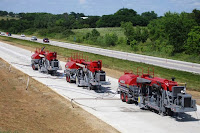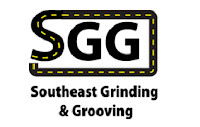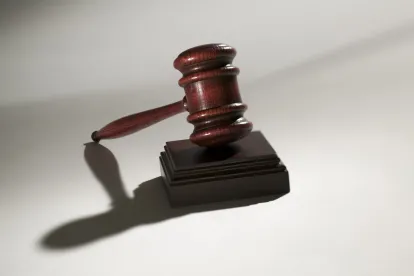On September 12, 2013 Penhall Company (“Penhall”) of Anaheim California filed a complaint againstSoutheast Grinding and Grooving, LLC (“Southeast”) of Marietta, Georgia and Stefan Frame, also of Marietta, Georgia alleging trademark infringement under Section 32(1) of the Trademark Act of 1946 [15 U.S.C. § 1114(1)], unfair competition under Section 43(a) of the Trademark Act of 1946 [15 U.S.C. § 1125(a)], dilution and injury to business reputation under O.C.G.A. § 10-1-451(b), deceptive trade practices claim O.C.G.A. § 10-1-370 et seq., false advertising under O.C.G.A. § 10-1-421 et seq., violation of fair business practices under O.C.G.A. § 10-1-390 and trademark infringement and unfair competition under common law.

Penhall's Grinding Trucks
Southeast is a provider of concrete cutting, breaking, excavation and highway grinding services across the southeastern United States and has offices in the Atlanta and Dallas/Ft. Worth areas. Penhall provides similar services in large portions of the United States and Canada, including the Southeastern United States and has 40 locations across 17 states and Canada, including offices in the Atlanta and Dallas/Ft. Worth areas.The controversy involves use of the letters “SGG” as a trademark for grinding and grooving services. In short, Penhall’s complaint states that it acquired the “SGG” mark on December 7, 2012 as part of a larger transaction from Safety Grooving & Grinding, L.P.(“Safety Grooving”), another grinding and grooving service company, who had been using the mark at least since August 22, 1988. Safety Grooving’s registration of the mark issued October 4, 2011.
According to the complaint, the problem arose when defendant Stefan Frame, who was a Penhall employee from 1999-2009, formed Southeast on January 15, 2010 and soon after began using “SGG” on equipment, marketing materials and a company web site. The complaint also alleges Frame had contacted the then-current president of Safety Grooving during that same month, on January 8, 2010, to inquire about job opportunities. The complaint asserts that this demonstrates notice and willfulness in use of the mark.
Between its issuance in October 2011 and Penhall’s acquisition of the mark fourteen months later, Safety Grooving sent two cease and desist letters to Southeast in a back and forth about the allegedly infringing use. The second reiterated Safety Grooving’s demands after Southeast refused to cease the allegedly infringing actions in its reply to the first letter.

Southeast's Trucks Grinding a Race Track
The complaint also details several specific instances of alleged actual customer confusion between Penhall and Southeast as a result of the “SGG” mark being associated with the wrong company or from customers not realizing there were two distinct companies. Penhall alleges irreparable harm as a result.
.jpg)
Penhall’s complaint further asserts that Southeast’s alleged use of the “SGG” mark is intentional, willful, and maliciously calculated to cause confusion, to cause mistake, or to deceive as to the affiliation, connection, or association of Southeast with Penhall as to the origin, sponsorship or approval of Southeast’s goods or services by Penhall.

These allegations form the basis of Penhall’s aforementioned claims. Penhall seeks judgment enjoining Southeast from using the “SSG” mark, an order to destroy anything of Southeast’s that bears the “SSG” mark, a report detailing compliance with the injunction, and lost profits, treble damages, costs and attorney’s fees.
The case is Penhall Company v. Southeast Grinding and Grooving, LLC et al, case no. 1:13-cv-03052-WSD in the United States District Court for the Northern District of Georgia, Atlanta Division, and is assigned to Judge William S. Duffey, Jr.



 />i
/>i

